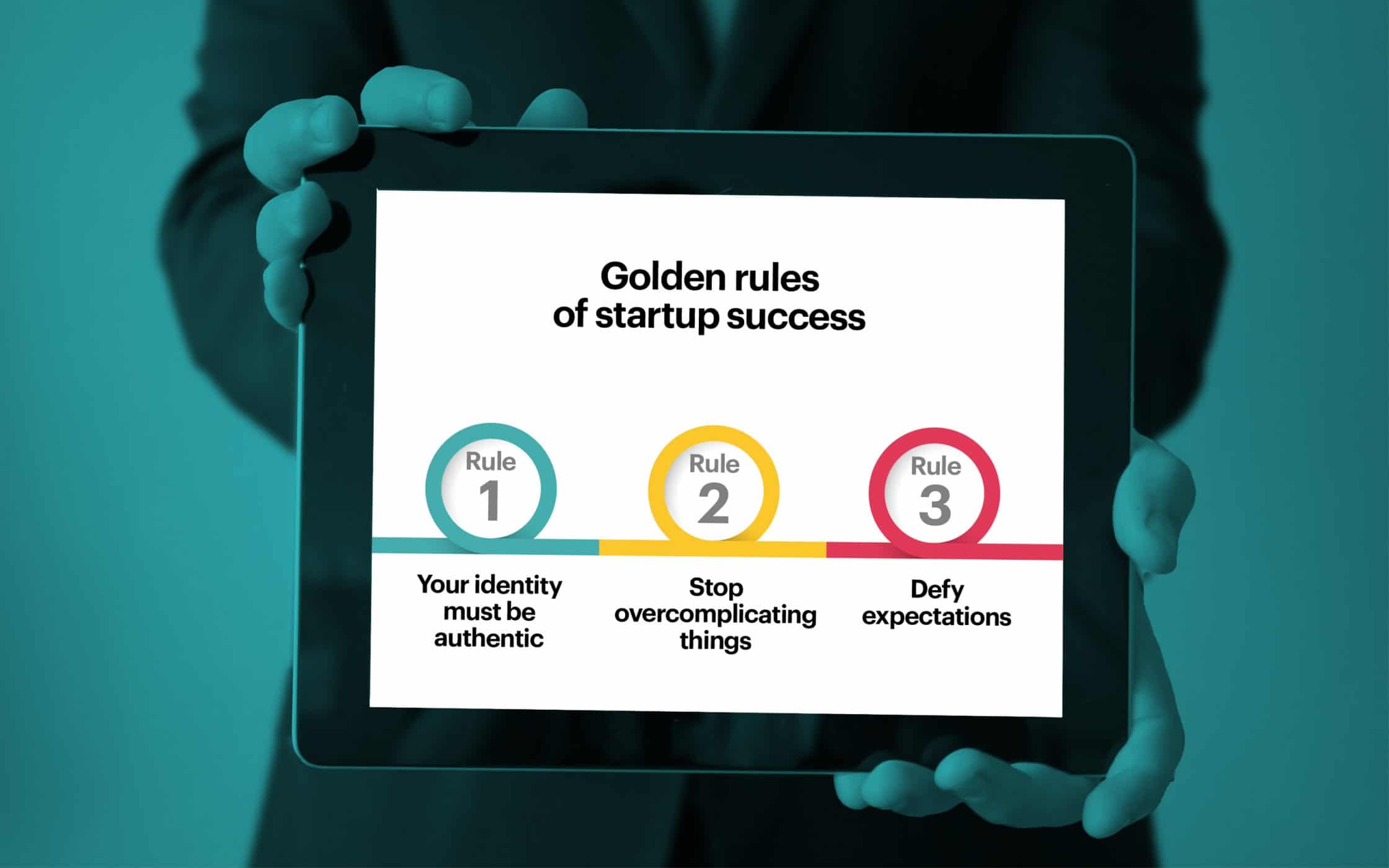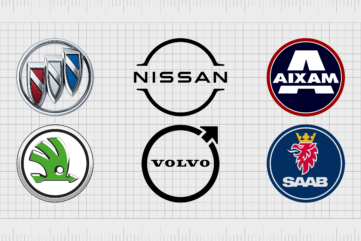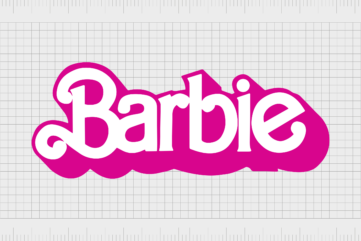Branding strategies for startups: Giving your new venture the best start in life

Are you ready for a change?
You’re sick of your nine-to-five routine and collecting coffee for your boss each morning. Maybe you’ve noticed a common problem in a specific industry and you believe you have what it takes to solve it. No matter what’s prompted you to join the legion of startup brands, it’s safe to say you’ve got a challenging road ahead.
As exciting as it can be to create and run your own business, there’s also a great deal of work involved with bringing your vision to life. For many aspirational companies, the path to success is lined with hazards, mistakes, and misunderstandings. So, how do you make sure that you don’t end up facing the wrong direction?
While support from a startup branding agency is the most obvious solution, there are also things that a company can do themselves to prepare for an uncertain future. A well-defined (and well funded) startup branding strategy acts as a roadmap for your organisation, leading you towards growth in your industry.
The only trouble is that branding can be a difficult process. There’s a lot to think about, from what you’re going to name your venture, to what your logo should look like. With that in mind, we’ve put together this comprehensive guide to branding for startups. By the time you’ve finished reading, you should know everything you need to know to launch the company of your dreams.
Let’s get started!

A bold introduction: The importance of branding strategies for startups
Good branding is at the heart of any great business. You need only look around you to see the evidence. Companies like Dyson, Virgin, and even Coca Cola didn’t just make an impact because they have great products. These companies are effective because they know how to present themselves to the right audiences at the right times.
While designing a startup branding strategy might just seem like more hard work on the surface, there’s a lot of advantages to carefully building a brand. For example:
- Your brand is the “identity” of your company: By giving you a voice, a personality, and a distinct image, it helps to differentiate you from all the other startups struggling to earn attention in a saturated marketplace.
- Your brand gives you direction: Investing time and effort into startup branding will help you to make important decisions about your business future. For instance, once you know your brand, you’ll know what you need to do to make the most of marketing, and how you should present new products to the world.
- Your brand makes you memorable: There’s more to being a memorable startup than a unique selling point. Branding startups cohesively means giving them the consistency they need to build affinity and familiarity with an audience.
- It offers focus: Not only does a strong brand help customers to perceive your company in the right light, but it helps employees to understand what you’re trying to do too. This makes it easier to ensure that everyone is working on the same page.
Branding is about more than throwing a few shapes together to make a logo or picking a name out of a pile of Post-it Notes. So, how exactly do you go about branding a new business from scratch? For most organisations, an interview with a branding agency for startups will be on the cards, however, before you get there, try devoting a little time to researching, and understanding your new company.
While there is time and effort involved in designing the perfect branding strategies for startups, the results are well-worth the investment. At the end of the day, it’s your brand that will help you to evolve from being “just another startup venture”, into a powerful industry, sector or household name.

Branding for startups: How to start on the right foot
As mentioned above, there’s more to a brand than just a name and logo (although those things are important). Startup branding involves an in-depth consideration of countless factors, including:
- Name.
- Image.
- Marketing.
- Voice.
- Story.
- USP.
- Website.
…and many more. That’s a lot for a startup company to address all at once. The complexity of branding is enough to send some startups running for the hills. However, the truth is that designing your branding strategy doesn’t have to be a nightmare. All you need to do is keep the three “C’s” in mind (Clarity, Consistency, and Creativity) while you follow these steps:
Step 1: Identify the market for your startup
It’s impossible to successfully brand any business without context. In other words, you need to know who your ideal customers are, where you’re positioned in the current marketplace, and how your products compare to those provided by competitors.
Begin by asking yourself who you really want to sell to. Pro tip: The answer here isn’t “everyone”. As nice it would be to make the entire world your audience, the truth is that being too vague or broad with your user and buyer personas is a recipe for failure. Startup companies need to make an impact fast, and the best way to do this is to focus in on a “niche”.
Ideally, your niche will be obvious and based on the product you’ve created. After all, the best products are always a response to an existing problem. Monzo made their banking application to support an under-served sector of the banking community. Once you’ve got your ideal customer in mind, dig down into specific details about them, such as:
- Where do they live?
- What are their likes and dislikes?
- How old are they?
- How do they like to be spoken to?
- How do they spend their free time?
The more information you gather, the more you’ll be able to tailor-make a brand launch that speaks directly to the person most likely to invest in your company.
Step 2: Study your competitors
Even the most sensational startups in the world are at a disadvantage today. You’re entering the game after dozens of companies have already started playing, which means that you need to work extra hard to find a place on the board.
Studying your competitors will help you to determine not only where there’s a gap in the market, but what you need to do to brand yourself successfully. Ask yourself:
- What do the most popular logos in my niche look like?
- What do I need to think about when picking a name?
- How do my competitors talk to our shared customer base?
- How do my competitors market themselves?
- What are my competitors good/bad at?

Step 3: Differentiate yourself
No matter how incredible your product might be, there’s a good chance that someone else is already doing something similar. The only way to survive in this crowded space is to identify where your products stand out from the crowd. For instance, there might be countless companies out there selling craft beer – but maybe yours is the only one that’s gluten-free?
Sometimes, the thing that really makes you special will have nothing to do with your product. After all, if you look at the marketing mix, there’s more to your business than the items you sell. Maybe you don’t provide the most cost-effective services or sell the cheapest products in your sector. However, you could have a customer service experience that makes up for all that. Find a way to be different – no matter how small that difference might seem.
Step 4: Choose a name with caution
When it comes to startup branding, a lot of branding services for startups find that their customers are all-too-keen to jump into the naming process. Unfortunately rushing to give yourself and your company a title can mean that you end up with some truly terrible names. Or create extra work and expense further down the line, because you’ve cut corners.
Since your name is how your customers will come to know your product, your services, and your brand, it’s an important part of your identity. Before you start creating your logo, visual identity and printing out business cards, think about what people will imagine when they hear your name. Look for ways that your name might be misconceived in different countries or cultures.
A good rule of thumb – if you need to explain how to pronounce your name, or justify why your name makes sense and what it means, then you might not be on the right track.
Step 5: Create your image
Finally, once all your startup branding research is done, and you understand what your company is going to be about, you’ll be ready to start working on your image. There are a lot of factors that go into a business image, including the images you choose for your website, the logo you pick for your brand, and the colour schemes that you spread across your media.
Since we’re living in a digitally-focused world today, make sure that all the branding materials you create will work on a range of different platforms. This is crucial for making sure that your brand appears modern, and professional.
For startups, the best thing you can do (unless you have prior graphic design knowledge) is access the help of an expert. Since your logo and image is going to stay with you for a long time, you really can’t afford to make a mess of it. A startup branding agency will make sure that you don’t do anything you’re going to regret later.

Telling your story: Starting your startup branding strategy
At this point, you should have a lot of the information you’re going to need to inform and enhance your startup branding strategy. That means that you’re ready to start working on your “presence” and what you’re going to mean to your customers when you eventually start marketing.
Startup brands have a unique opportunity to get ahead of some of even the biggest companies in the world. The reason for this is that you don’t have to overcome any prior mistakes or adjust your marketing strategy to speak to an ever-evolving audience. Instead, you can appear on the market instantly as the perfect solution to your customer’s problem.
Today, people want transparent, human, and relatable brands. Giving your company a history and identity before you ever go to market can help to ensure that the resources are there for you to develop long-term relationships with your consumers.
1. Begin by telling your story
Startup branding should always start with a story. Human beings are natural storytellers, and we’re wired to listen to stories that establish an emotional connection in our minds. In fact, one study found that reading a story activates the same parts of your brain that would come to life if you were experiencing the events for yourself.
For years, teachers, politicians, and parents have understood the power of stories. To take advantage of a strong narrative in your branding strategies for startups, think about where your company came from, and what caused you to create the products or service you’re offering. The deeper you dig into your background, the more you’ll learn about your company’s motivations, values, and purpose.
2. Determine who you want to be
Branding startups can be a confusing process because it often involves giving human attributes to a non-human entity. You need to give your business a personality, or your customers will have nothing to resonate with.
Thinking of your organisation as a person should help you to come up with words and phrases that are best suited to describe it. For instance, would you rather be welcoming and friendly or formal and professional? While it might be tempting to create a word cloud full of positive terms, it’s better to narrow your identity down to just a few key phrases that will form the basis of your personality.
From there, you can start to think about straplines that will convey your values to your customers. For instance, think about how Nike wants us to overcome our fears and “Just Do It”:

This demonstrates a personality of support, strength, and perseverance. On the other hand, Airbnb show their focus on belonging, community, and friendship with the following strapline:

3. Share your brand narrative
Eventually, you’ll reach a point with your branding agency where you need to stop researching your identity, and start sharing your narrative with the world. This is often the most frightening and complex part for most companies, which is why we’re going to design another guide to help you figure out what you need to do to earn the right attention.
For now, just remember that your marketing strategies will often include a range of different media, including:
- Offline branding and experiential strategies.
- Social media marketing and influencer posts.
- Content creation (including blogs, videos, and images).
No matter what you do, the key to success with marketing and growing your startup brand is “consistency”. Once you’ve decided what you want your brand to be, you need to stick with it, at least until you decide to rebrand.

Branding startups: The golden rules of startup success
So far, you’ve learned a lot about startup branding and what it takes to leave your mark on the world.
While every startup company will have different values to share and different strategies to explore, there are still a few golden rules to keep in mind. Regardless of whether you’re working with a startup branding agency, or you prefer to go it alone with nothing but the support of your team, try to remember the following:
1. Your identity musts be authentic
Startup brands are in a tough position. You want to earn the loyalty of your target customers, but you need to act fast to make sure that you get their attention before your competitors do. It’s no wonder that some organisations end up ignoring their startup branding strategy, and simply say whatever it takes to hopefully get their clients on their good side.
While it will always be tempting to simply tell your customers what they want to hear – this isn’t a successful long-term strategy. If you want your startup to become a real and profitable business, then you need to determine your values early on and dedicate yourself to demonstrating the culture that your company lives by.
For instance, if you’re going to launch your startup with a focus on environmental protection, then you need to be ready to stand for green movements in your local area. When it comes to branding, words rarely mean as much as actions.
2. Stop overcomplicating things
While branding for startups isn’t always simple, that doesn’t mean that you should make it more complex than it needs to be. A lot of startup branding ends up going in the wrong direction because businesses try to do too much at once and overcomplicate the process.
For instance, when you’re choosing a logo, don’t approach the process thinking about all the different customers you “might” have in the future. Instead, think about what appeals to your target audience right now. While your logo should be timeless where possible, there’s always a chance that you’ll need to rebrand as your company evolves. Give yourself a break.
What’s more, remember to keep the bells and whistles to a minimum in everything you do. Your website should be clear and easy to navigate. Your name should demonstrate the USP of your brand, rather than leave your customers puzzled.
3. Defy expectations
Finally, launching your startup brand means showing the world what your company is capable of. For some companies, this will mean taking a stand with a unique position on an old topic. For others, it will be about changing the world with a product or service that never existed before.
In a world where customers are over-run by countless options in almost every industry, the only way to stand out is to pick a set of conventions and break them. For instance, you might be a flower company that deliberately plants new seeds every time you use a flower for an arrangement.
A great example of a startup branding strategy that broke the mould is the one used by Cards Against Humanity. You wouldn’t think that a party game for “terrible” people would get a lot of positive feedback, but today the product is a cult phenomenon. On Black Friday a couple of years ago (2014), Cards Against Humanity managed to make $180,000 selling boxes of faeces to their customers. Now that’s a startup that defies expectations.

Making the most of startup branding
Building a brand is a difficult experience. For any company, creating an identity, reputation, and persona for your organisation is something that’s going to take time and focus. For startup companies who are struggling with low budgets, little knowledge of the marketplace, and countless other concerns, great branding can be even harder to achieve.
Above all else, the best way to get started is to make sure that you have a startup branding strategy in place that will guide you along the path to success. Remember, successfully branding a startup can take time, and consistency is key to success. Your strategy will help you to keep your eye on the prize, so you don’t lose track of your values, tone of voice, or anything else that makes your venture unique.
As complex as startup branding can be, it’s worth the effort. Studies have found that companies that connect with their customers on an emotional level enjoy twice as much awareness. A brand can help you to make those lasting connections and grow your reputation for the future. All you need to do is make sure that you’re prepared for the road ahead.
The biggest worry for many startups is that they don’t have enough time to think creatively about their brand strategy, and the creative implementation of it. After all, you’ll be busy thinking about how to sell your products, what prices you should choose, and which retailers you might want to work with. If a lack of time and expertise is holding you back, then you could always try working with a specialist company that’s dedicated to providing branding services for startups instead.
A branding company can tackle the hard work of launching your startup so that you can focus on what you do best.
If you enjoyed this article, you might enjoy these too:
— Disruptive marketing for non-conventional thinkers
— An insiders view on trusting your gut instinct











